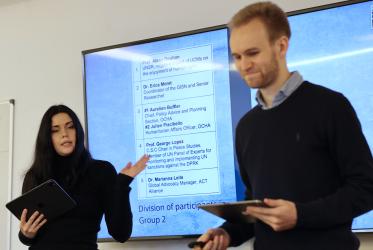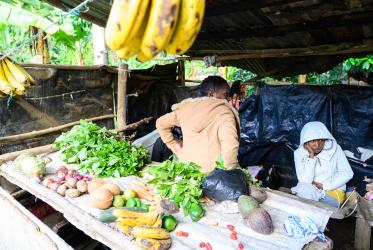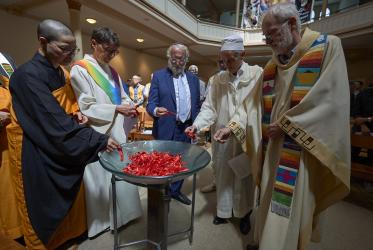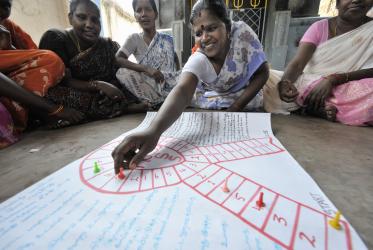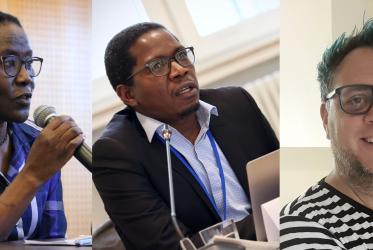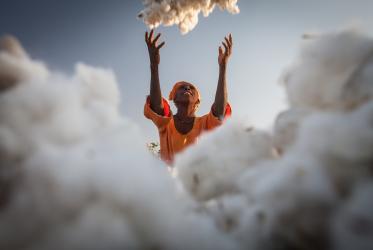Displaying 61 - 80 of 294
HIV and AIDS Civil Society Networks and the Faith Sector
Lessons Learnt from Strategic Engagement in India, Dominican Republic, Indonesia, and Jamaica
31 January 2023
On World AIDS today, tackling inequalities is a matter of justice
02 December 2022
WCC invites all to World AIDS Day prayer service
28 November 2022
WCC to hold webinar on HIV and AIDS response in four countries
16 November 2022
Called to Transformation - Ecumenical Diakonia
09 June 2022



